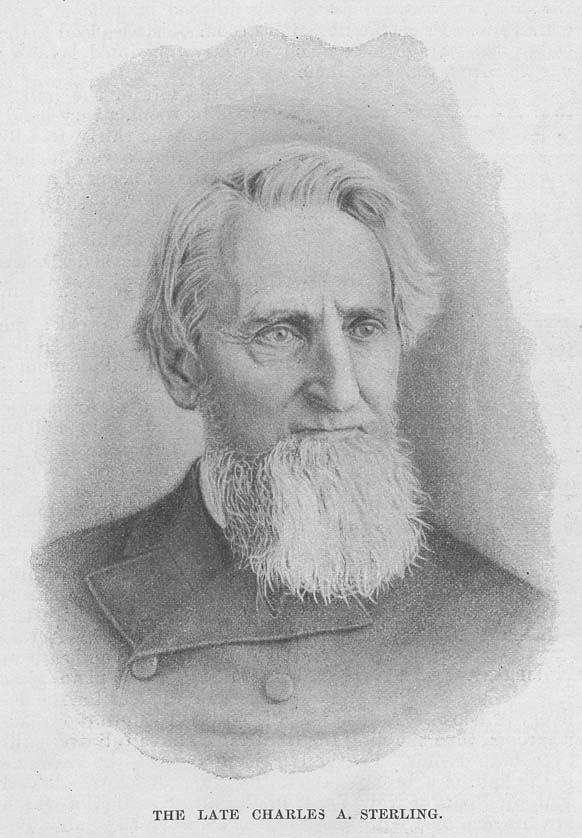 Charles A. Sterling
Charles A. Sterling was the owner of one of the most prestigious and best known businesses to ever locate in Derby. Sterling lived on Caroline Street and was married to the daughter of business magnate Edward N. Shelton.
There seems to be some confusion on the exact evolution of the company which was located in the area of today's Water Street. As you can see from the 1909 ad in the Brooklyn Daily Eagle below, the company considered 1860 as the year it was established by Sterling, but there are indications that it may date back to 1845. Sterling headed the business in 1871 and by 1873 it became a joint stock company with Sterling as the president. Rufus Blake purchased a controlling interest in the business shortly before a fire destroyed it in 1875, but it was quickly rebuilt. Though Sterling continued as head of the company until his death about 1887, it was Blake who made pianos a major part of the business in 1885. By 1896, the Derby facility encompassed 16 buildings along the canal which no longer exists. A subsidiary, the Huntington Piano Company was located across the river where the Ripton Apartments are now located. That enterprise failed after a terrible fire in 1922. Years later the building housed the Shelton Community Center and later the Boys & Girls Club before it was totally destroyed by fire in the 1990's. Eventually it had its headquarters in New York City, but its manufacturing plants were in Derby and later across the river in Huntington. The Sterling Piano Company built several different piano names including Mendelssohn, Huntington, Goetz & Co., Richardson and Lohmann. Sterling pianos and organs were known for quality, and were sold all over the United States and exported to other countries as well. The Derby plant was enormous. The facility consisted of several large buildings painted white and very visible for all to see. One account that we have read said that at the time the main building was razed in the early 1930's, it was considered to be the largest wooden factory building in CT. In 1926, Steinway offered to buy out Sterling, but was refused. After the Great Depression, Sterling merged with the Winter Piano Company, and the Sterling name was produced until the 1960s.
Return to Hall of Fame Home Page |


